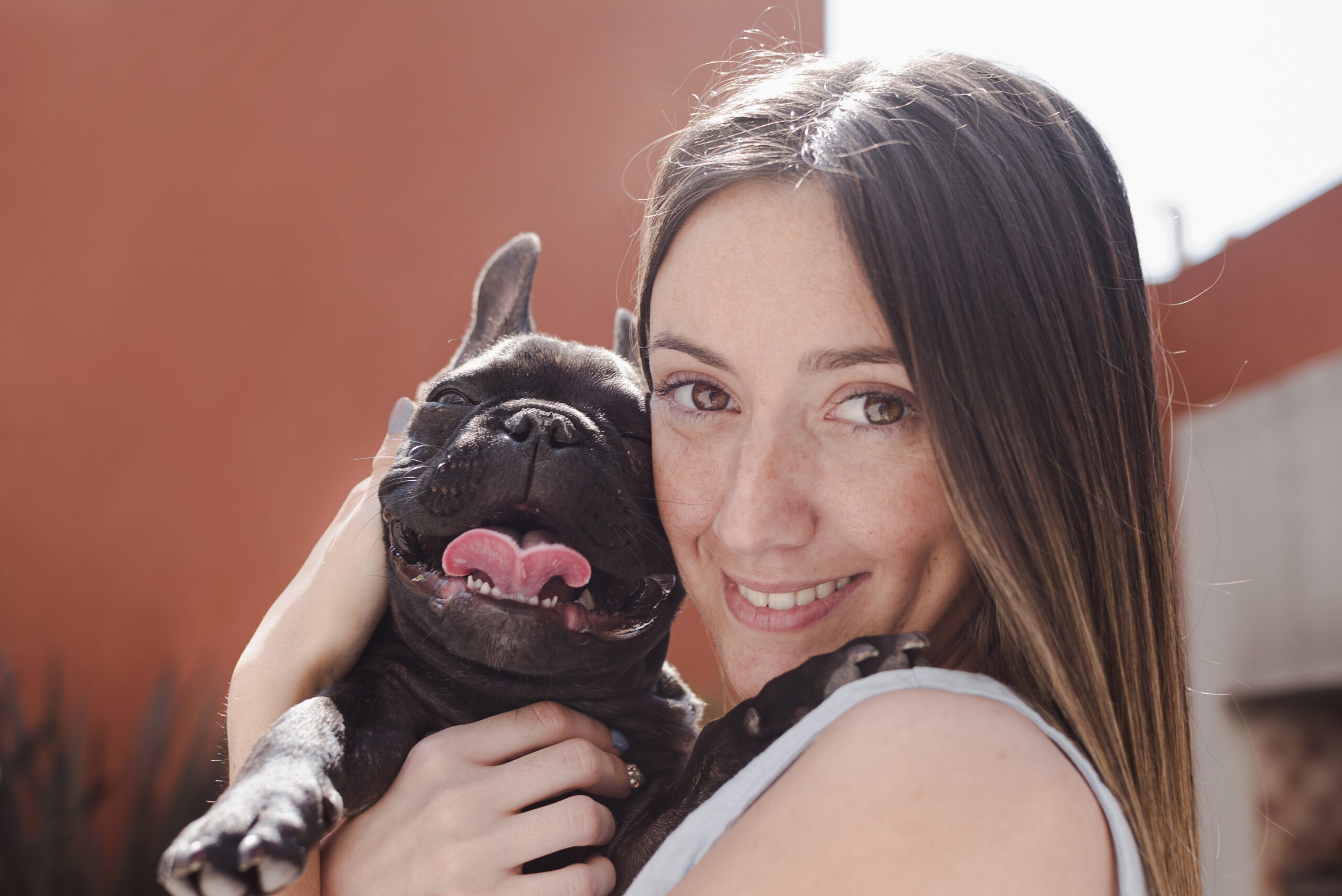A Comprehensive Guide to Caring for Your Pit Bull Puppy
Pit bull puppies are adorable bundles of energy and affection, but they also require specific care to thrive in their new homes. Proper care from the start lays the foundation for a healthy and well-behaved adult dog. Here’s a comprehensive guide on how to care for your pit bull puppy:
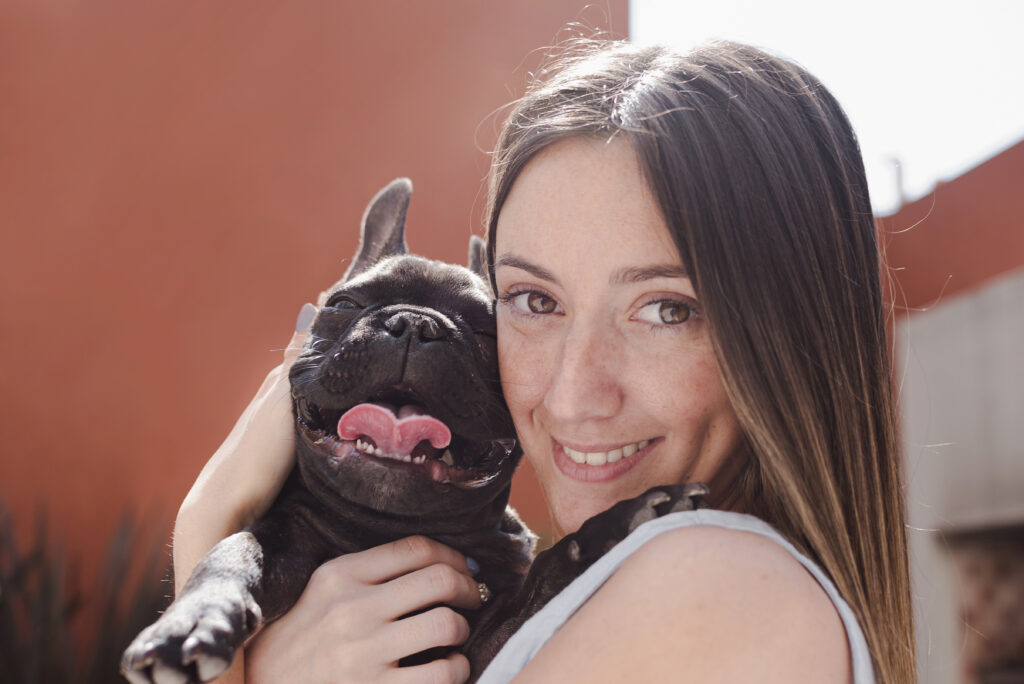
Introduction: Welcoming Your Pit Bull Puppy Home
Bringing a pit bull puppy into your home marks the beginning of a rewarding journey filled with companionship, loyalty, and boundless joy. As you embark on this exciting chapter, it’s crucial to lay the foundation for a harmonious coexistence between you and your newest family member. The anticipation of their arrival is not only a testament to the love and commitment you’ve decided to share with a canine companion but also an opportunity to create an environment that fosters growth, safety, and mutual understanding.
To ensure a seamless transition for your pit bull puppy, thoughtful preparation is key. Setting up a dedicated space within your home becomes an essential first step. This space serves as a sanctuary where your puppy can retreat to feel secure and comfortable. Consider designating a quiet corner or a specific room equipped with all the necessities they’ll need, offering a haven for rest and relaxation. As you welcome your furry friend, it’s important to strike a balance between creating a secure space and integrating them into the family dynamic.
To cater to your pit bull puppy’s basic needs, gather the essential supplies beforehand. Food and water bowls, a plush and cozy bed, and an assortment of chew toys should be on the top of your checklist. This not only ensures their immediate needs are met but also aids in creating a positive association with their new environment. Taking the time to select high-quality, nutritious food demonstrates your commitment to their well-being from the very start.
In this guide, we will explore the intricacies of making your home a haven for your pit bull puppy, addressing everything from the initial introduction to the establishment of routines that promote a healthy and happy lifestyle. By delving into the nuances of pit bull care, we aim to equip you with the knowledge and tools necessary to forge a deep, lasting bond with your new canine companion. So, as you eagerly prepare to welcome your pit bull puppy into your home, let this guide be your trusted companion on the exciting journey of puppy hood and beyond.
Table of Contents
Feeding Guidelines for Pit Bull Puppies
The nutritional foundation laid during your pit bull puppy’s formative months plays a pivotal role in shaping their overall health and well-being. To ensure optimal growth and development, it is imperative to prioritize a balanced and nutritious diet tailored to meet the unique needs of pit bull puppies. When selecting puppy food, prioritize high-quality options that are specifically formulated to provide the essential nutrients vital for their growth. Look for a well-balanced blend that includes a proper ratio of proteins, fats, carbohydrates, vitamins, and minerals.
Consulting with your veterinarian is a crucial step in establishing a feeding regimen that aligns with your pit bull puppy’s individual requirements. A professional opinion can guide you in choosing the most suitable food brand and determining the appropriate portion sizes based on factors such as age, weight, and activity level. This personalized approach ensures that your puppy receives the right combination of nutrients essential for their energetic lifestyle and rapid development.
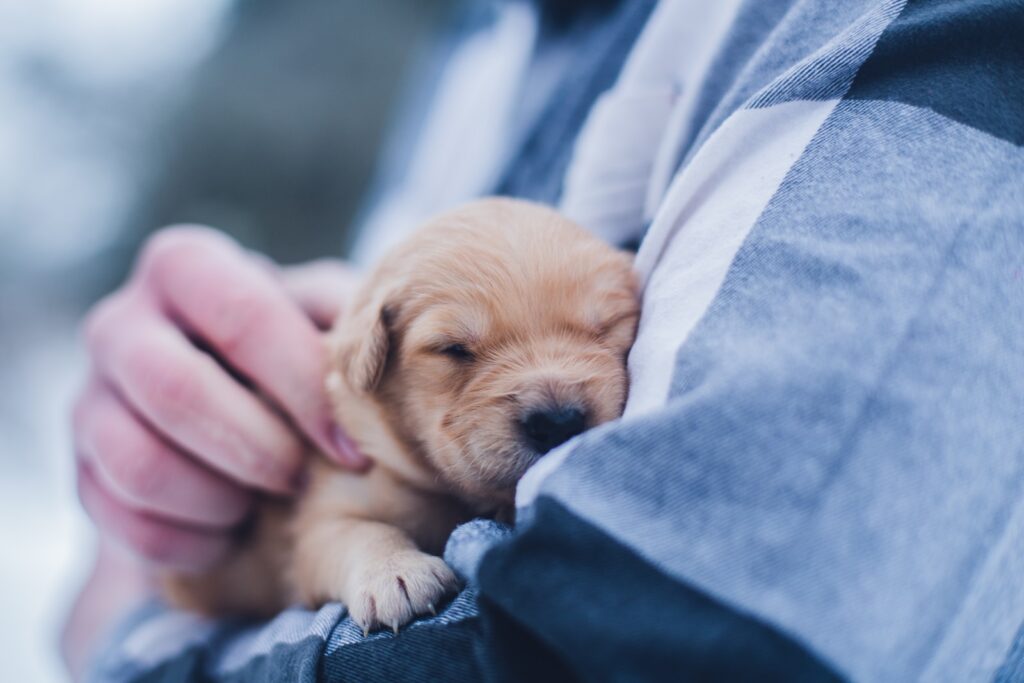
Pit bull puppies are known for their robust and muscular build, making protein a particularly crucial component of their diet. Opt for puppy food that lists a high-quality source of protein, such as meat or poultry, as the primary ingredient. Proteins aid in muscle development, providing the necessary support for their active play and exercise. Additionally, a well-formulated diet contributes to the development of a strong immune system, helping your pit bull puppy ward off potential health issues.
Establishing a consistent feeding schedule is equally important. Regular, measured meals not only contribute to better digestion but also create a sense of routine for your puppy. This routine can be comforting and beneficial in training, as puppies often thrive on predictability. Avoid free-feeding, as it may lead to overeating and weight-related concerns. Instead, allocate specific times for meals, allowing your pit bull puppy to anticipate and appreciate their nourishment.
In this comprehensive guide to pit bull puppy care, we will delve deeper into the intricacies of nutrition, offering insights into treat choices, dietary adjustments as they grow, and monitoring their overall health. By embracing a well-informed approach to feeding, you lay the groundwork for a healthy, happy, and vibrant life for your pit bull puppy.
Training Essentials for Your Pit Bull Puppy
Embarking on the journey of training your pit bull puppy is a fundamental step in fostering a harmonious relationship and ensuring their seamless integration into your household. Early training holds the key to shaping their behavior, building a foundation of discipline, and establishing effective communication channels between you and your furry companion. In this comprehensive guide, we will explore the essential elements of training, emphasizing positive reinforcement techniques to bring out the best in your pit bull puppy.
Positive reinforcement is the cornerstone of successful training sessions for pit bull puppies. Utilizing treats, praise, and affection as rewards creates an environment where your puppy associates good behavior with positive outcomes. This not only motivates them to repeat desired actions but also strengthens the bond between you and your canine friend. When introducing treats, opt for small, flavorful incentives that capture your puppy’s attention and elicit enthusiasm.
Begin the training process with basic commands, gradually introducing them in short and engaging sessions. Commands like sit, stay, and come are fundamental building blocks that lay the groundwork for more advanced training later on. Keep sessions brief, as puppies have shorter attention spans, and maintain an upbeat and encouraging tone to keep them motivated. Consistency is key; repeating commands regularly in various environments reinforces their understanding and ensures that your pit bull puppy responds reliably.
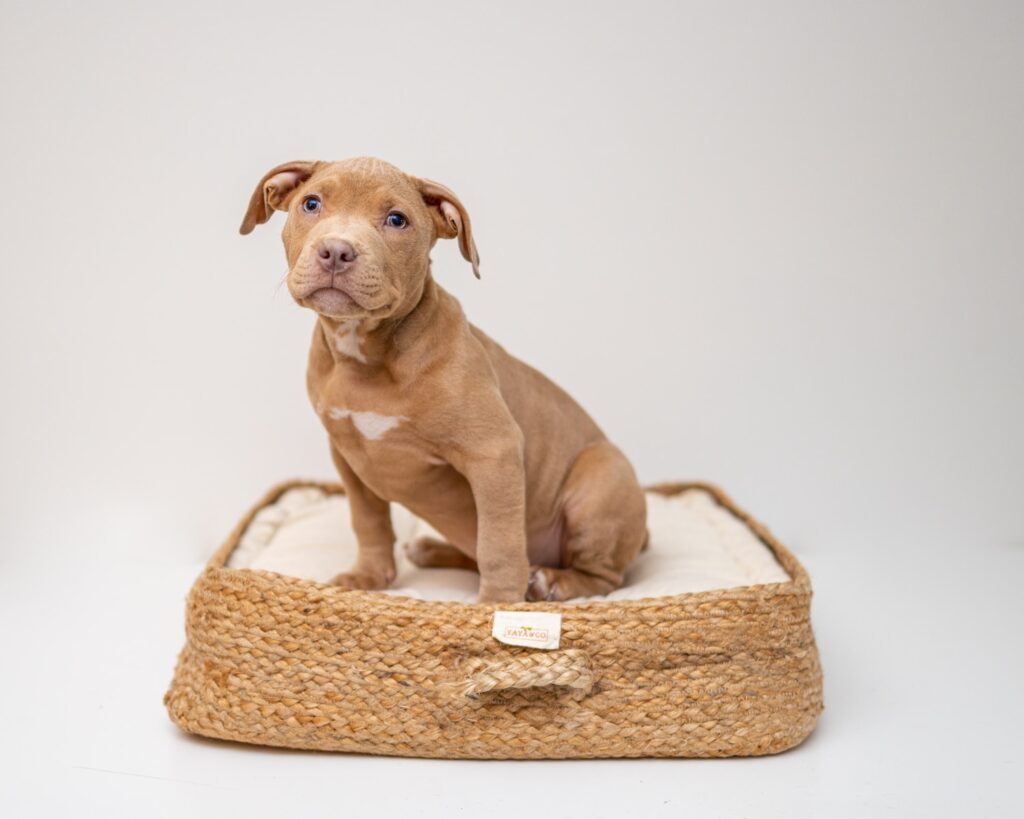
Creating a positive training environment extends beyond treats and commands. Incorporate playtime and interactive activities into your training sessions to make learning enjoyable for your puppy. Use toys and games that align with their natural instincts, such as tug-of-war or fetch, to make the training experience not only educational but also fun and stimulating.
Patience and understanding are crucial elements of successful pit bull puppy training. Recognize that each puppy is unique, with their own personality and learning pace. Be patient with their progress and adjust your training approach to suit their individual needs. Celebrate small victories, and if challenges arise, reassess your methods rather than becoming frustrated.
As we delve further into this training guide for pit bull puppies, we will explore advanced commands, socialization techniques, and strategies to address specific behavioral challenges. By laying a solid foundation through positive reinforcement and patient guidance, you set the stage for a well-behaved, confident, and happy pit bull companion.
For a deeper dive into Training Essentials for Your Pit Bull Puppy, explore our comprehensive guide on Training Your Pit Bull Puppy with Positive Reinforcement
Health Care for Pit Bull Puppies
Ensuring the well-being of your pit bull puppy goes beyond providing love and a nourishing diet. Regular veterinary check-ups, vaccinations, and proactive preventive care are paramount in safeguarding their health and happiness. In this section of our guide, we will delve into the essentials of health care for pit bull puppies, shedding light on routine practices and common health concerns to empower you in keeping your furry friend in optimal condition.
Regular visits to the veterinarian are the cornerstone of a comprehensive health care routine for your pit bull puppy. These check-ups serve as proactive measures to monitor your puppy’s growth, address any concerns, and establish a personalized healthcare plan. During these visits, your vet will administer vaccinations to protect your puppy against infectious diseases, providing a crucial shield during their early, vulnerable months. Maintaining a consistent vaccination schedule is vital in ensuring your pit bull puppy develops a robust immune system.
In addition to vaccinations, preventive care is instrumental in preventing potential health issues. Discuss with your veterinarian a suitable plan for flea and tick prevention, heartworm protection, and other preventive measures tailored to your pit bull’s specific needs and lifestyle. These preventative measures not only contribute to your puppy’s overall well-being but also save you from the stress and expense of treating preventable conditions later on.
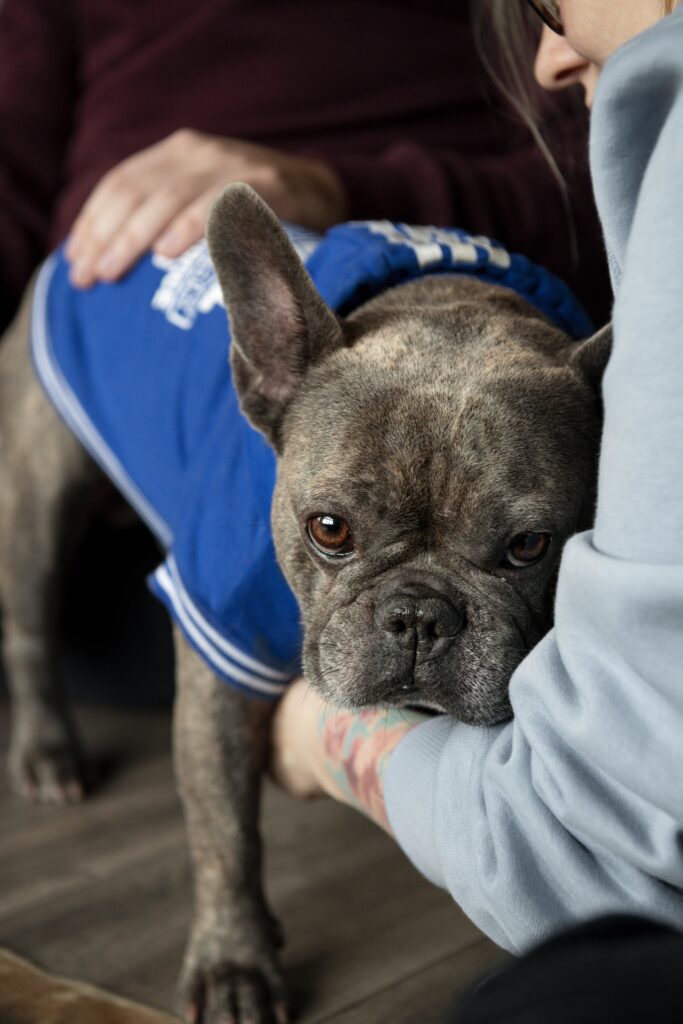
Educating yourself about common health issues in pit bull puppies is another proactive step towards comprehensive care. Conditions such as skin allergies or hip dysplasia are prevalent in the breed, and early detection is key to effective management. Be vigilant in observing your puppy for any signs of discomfort, changes in behavior, or unusual symptoms. Promptly addressing these concerns with your veterinarian can make a significant difference in the prognosis and treatment of potential health issues.
Regular grooming practices are essential components of your pit bull puppy’s health care routine. Brushing their coat helps maintain a healthy skin and coat, while regular dental care, such as brushing or providing appropriate dental treats, contributes to their oral health. These practices not only enhance your puppy’s physical well-being but also provide opportunities for bonding and positive interaction.
Discover more valuable information, expert tips, and practical advice to enhance your understanding. Click Keeping Your Pit Bull Puppy Happy and Healthy: Grooming Tips and Maintenance Guide to read the full article.
Grooming and Maintenance Tips for Your Pit Bull Puppy
While pit bull puppies boast short, sleek coats that are generally low-maintenance, incorporating a well-rounded grooming routine into their care is essential for promoting overall health and enhancing their appearance. In this segment of our comprehensive guide, we’ll delve into grooming and maintenance tips tailored to the specific needs of your pit bull puppy, covering everything from coat care to dental hygiene.
- Brushing for a Healthy Coat: Regular brushing is a simple yet effective practice to keep your pit bull puppy’s coat in top condition. Despite their short fur, they do shed, and brushing helps remove loose hair, preventing it from accumulating around your home. Additionally, brushing stimulates the skin, distributing natural oils that contribute to a healthy and shiny coat. Aim for a gentle brushing session at least once a week, adjusting the frequency based on your puppy’s shedding tendencies and individual needs.
- Nail Trimming: Keeping your pit bull puppy’s nails at an appropriate length is crucial for their comfort and mobility. If you hear their nails clicking on the floor, it’s likely time for a trim. Use a pair of dog nail clippers to carefully trim the tips of the nails, avoiding the sensitive quick. If you’re unsure or uncomfortable with this task, your veterinarian or a professional groomer can demonstrate the proper technique or handle it for you.
- Ear Cleaning: Pit bull puppies, like many breeds, are prone to ear issues due to their floppy ears that can trap moisture. Regularly check and clean their ears to prevent infections. Use a veterinarian-approved ear cleaning solution and a soft cloth or cotton ball to gently wipe the inside of their ears. Be attentive to any signs of redness, swelling, or unusual odors, as these may indicate an underlying issue that requires veterinary attention.
- Dental Care: Dental hygiene is a crucial yet sometimes overlooked aspect of pit bull puppy care. Introduce your puppy to tooth brushing early on using a dog-friendly toothbrush and toothpaste. Dental chews and toys designed to promote oral health can also be incorporated into their routine. Good dental care not only prevents bad breath but also contributes to the overall well-being of your puppy by reducing the risk of dental issues.
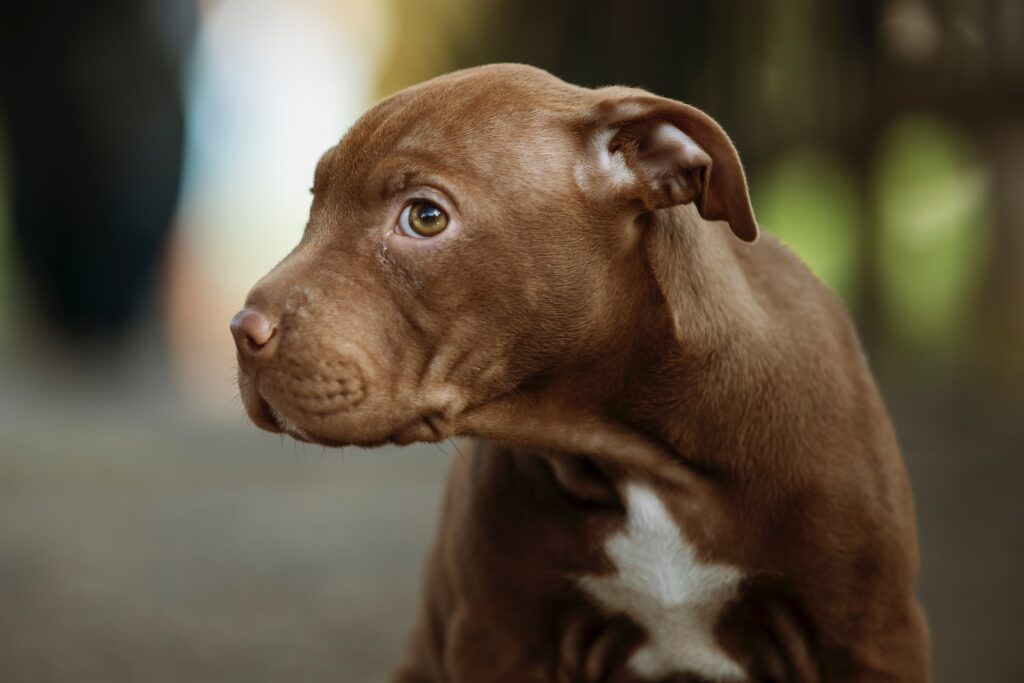
By incorporating these grooming and maintenance practices into your routine, you not only enhance the physical well-being of your pit bull puppy but also create opportunities for positive bonding experiences. As we navigate through this guide, we will delve deeper into specific grooming techniques, addressing individual needs and providing insights to ensure that your pit bull not only looks but also feels their best.
For a deeper dive into Grooming and Maintenance Tips for Your Pit Bull Puppy, explore our comprehensive guide on Pit Bull Puppy Care FAQs: Expert Advice for a Happy and Healthy Companion
Socialization and Interaction: Building Confidence in Your Pit Bull Puppy
One of the cornerstones of raising a well-rounded and confident pit bull is effective socialization. This process involves exposing your puppy to a diverse range of environments, people, and other animals from an early age to cultivate positive experiences and foster a balanced temperament. In this section of our guide, we will explore the importance of socialization for pit bull puppies, offering insights and practical tips to ensure that your furry companion grows into a socially adept and emotionally resilient adult dog.
- Early Exposure to Environments: Introduce your pit bull puppy to various settings, both indoors and outdoors, to help them acclimate to different sights, sounds, and surfaces. Expose them to the hustle and bustle of urban areas, the tranquility of parks, and the familiarity of home. This early exposure helps build their confidence and adaptability, preventing anxiety or fear in new situations later in life.
- Positive Interaction with People: Encourage positive interactions with a diverse array of people, including individuals of different ages, genders, and ethnicities. This exposure helps your puppy develop a broad understanding of human behavior, fostering friendliness and confidence. Allow people to approach and interact with your puppy in a gentle and positive manner, reinforcing the idea that meeting new individuals is an enjoyable experience.
- Socializing with Other Animals: Facilitate controlled interactions with other dogs, cats, and even smaller animals to promote positive social behavior. Supervise these interactions to ensure safety and step in if necessary, but also allow your pit bull puppy to learn appropriate play and communication skills. Positive encounters with other animals during their formative months contribute to the development of healthy social dynamics.
- Structured Training Classes: Enroll your pit bull puppy in structured training classes that incorporate socialization elements. These classes provide a controlled environment where puppies can learn obedience, engage in group activities, and interact with both their human handlers and fellow canines. Professional trainers can guide you on effective socialization techniques and address any behavioral concerns that may arise.
- Positive Reinforcement: Throughout the socialization process, use positive reinforcement techniques to reward desirable behaviors. This can include treats, praise, and affection. By associating positive experiences with new environments, people, and animals, your pit bull puppy learns that these encounters are not only safe but also enjoyable.
Understanding that the socialization window is most impactful during the first few months of your pit bull puppy’s life emphasizes the importance of early and consistent efforts. However, it’s never too late to work on socialization. Patience and gradual exposure are key to building your pit bull’s confidence and ensuring they grow into a well-adjusted, friendly, and socially adept canine companion. As we progress in this guide, we will delve further into advanced socialization techniques and address specific challenges that may arise during this crucial developmental phase.
Conclusion: Building a Lifetime of Love and Care
Embarking on the journey of caring for a pit bull puppy is a commitment that extends beyond the initial excitement of their arrival. It’s a lifelong dedication that demands patience, unwavering dedication, and, above all, a boundless reservoir of love. As your pit bull puppy transforms into an adult companion, the foundation you’ve laid during their formative months becomes the cornerstone of a lifetime filled with joy, loyalty, and mutual understanding.
The journey doesn’t end with the puppy stage; it evolves into a continuous process of nurturing and companionship. Consistent training remains a vital component as your pit bull matures, reinforcing positive behaviors and adapting to their changing needs. A well-behaved adult pit bull is a testament to the time and effort invested in their upbringing, ensuring that they seamlessly integrate into your lifestyle and the broader community.
Affection is the currency of your relationship with your pit bull throughout their life. As they grow, the bond you’ve forged through cuddles, play, and shared experiences becomes increasingly significant. Demonstrating your love through daily interactions, whether it’s a simple pat on the head or a joyful game of fetch, strengthens the emotional connection between you and your furry companion.
Proper care remains paramount at every life stage. Regular veterinary check-ups, a balanced diet, and consistent grooming contribute to their physical well-being. It’s a holistic approach that ensures your pit bull not only looks good but also feels good, promoting a vibrant and active lifestyle.
In reflecting on these guidelines, you can take pride in knowing that you’ve laid the groundwork for a happy, healthy, and well-behaved pit bull companion. Your efforts in providing a nurturing environment, instilling good behavior, and showering them with love contribute to a fulfilling and enriching life for your pit bull.
As you continue this journey together, remember that the relationship between you and your pit bull is a dynamic and evolving partnership. Be attuned to their changing needs, celebrate milestones, and face challenges together. In doing so, you’re not just caring for a pet; you’re fostering a profound and enduring connection that transcends the boundaries of species.
May your pit bull’s tail keep wagging, their eyes sparkle with happiness, and your shared adventures be filled with laughter and joy. Here’s to building a lifetime of love and care with your remarkable pit bull companion.

